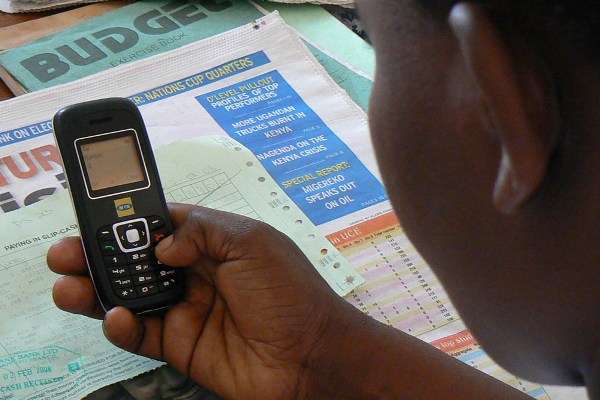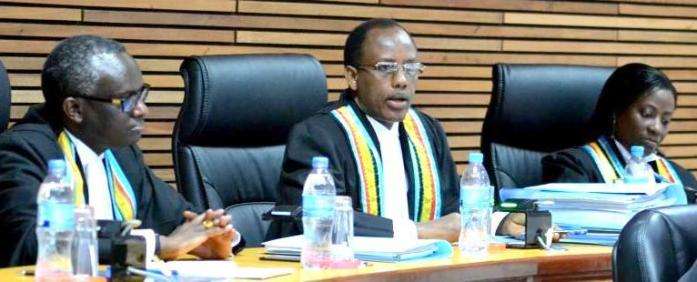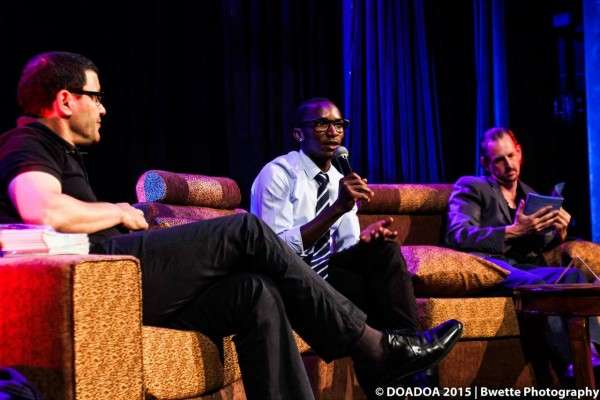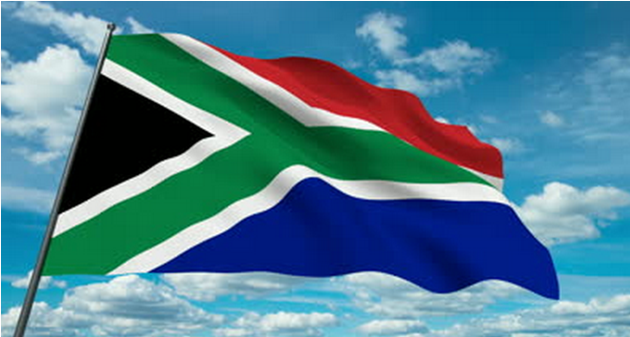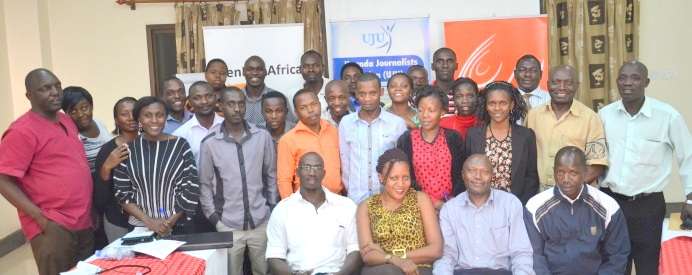By Lillian Nalwoga |
For true democracy to flourish there is need for government transparency, greater access to public information, and inclusion of citizens’ voices in decision-making processes. The use of Information and Communication Technologies (ICT) can aid in increasing awareness and empowering citizens to meaningfully participate in governance processes such as monitoring public services delivery.
The Collaboration on International ICT Policy in East and Southern Africa (CIPESA) has since 2011 implemented the iParticipate Uganda project, which leverages ICT to catalyse civic participation and democracy monitoring in Uganda. While working with grassroots based partners, CIPESA has offered capacity building sessions, and created awareness on how Ugandan citizens can effectively use different ICT tools for social accountability, including monitoring and demanding quality public services.
In 2014, CIPESA worked with the Northern Uganda Media Club (NUMEC) to document service delivery failures as a result of donor aid cuts to the Peace, Recovery and Development Plan (PRDP). The PRDP was launched in 2007 by the government of Uganda in partnership with development partners to revitalise the economy and promote peace-building and reconciliation in post-conflict northern Uganda. However, implementation has faced challenges of corruption and a lack of transparency in its methods of work.

The CIPESA-NUMEC work thus involved promoting dialogue between community members and duty bearers through community debates, radio talk shows and social media on how to improve service delivery for people living in post-conflict communities. Through these engagements, leaders have recognised the need to promote awareness of government programmes among the local communities for better monitoringof service delivery.
For instance, in one of the community debates organised by NUMEC, David Latigo Odongo, the Local Council Chairman of Acet village, Gulu district, acknowledged that lack of sensitisation hampers beneficiaries from monitoring government implemented projects. “They [citizens] do not know who will monitor and take care of PRDP projects, that is why when projects like water boreholes are constructed in the area, people look at it as freebies from either the government or NGOs,” he said.
Further, following the production of a documentary on poor service delivery, Martin Mapenduzi, the Gulu district Chairperson, was prompted to make follow-up on some stalled projects.

Similarly, in western Uganda where CIPESA is working with the eSociety Resource Centre located in Kasese district, another leader acknowledgenes to reach them. eources to health centers were located in semi-urban areas and the journalists lacked enough reseources toed the importance of promoting access to information as a means of enhancing citizens’ monitoring of public service delivery. “Meaningful participation in democratic processes requires informed participants hence the need for increased access to information,” observed John Thawite, the District Information Officer during the e-governance training for local leaders in the district.
This training was aimed at giving district officials skills to update the district website, elibrary and participate in the online district discussion group and Facebook discussions. As a result of this training, and the provision of free ICT services, the district online platforms have been more active and are updated regularly.
The centre serves as a community facility hosted by the Kasese district local government. CIPESA has supported it through the provision of computer equipment, internet subscription and facilitation for the ICT training officer.

At the Busoga Open Source Development Initiative (BROSDI) centre in Mayuge district in eastern Uganda, local communities are being supported by CIPESA in using ICT to monitor education service delivery. This has included training in the use of ICT for civic engagement, access to information and service delivery monitoring. Beneficiaries from one of the training sessions went on to create a project blog to enable users report on different service delivery issues in the district.
In 2014, more than 200 community members benefited from the trainings conducted at our partner centres.
CIPESA also conducted participatory research to document citizens’ knowledge, perceptions and attitudes towards use of ICT tools in monitoring service delivery. Participants in the research acknowledged the need to empower leaders in the use of ICT to respond to citizens’ demands. “Social media will be great when a new breed of users, that is people in leadership, start using it for civic engagement and governance monitoring,” observed a participant in a focus group discussion on citizens’ motivations for using ICT in governance processes.
These grassroots-based engagements, as well as the findings of research exercises on citizens’ and leaders’ use of ICT, access to information and service delivery monitoring will further inform CIPESA’s efforts to close the gap in the awareness and use of technology for enabling democratic processes.
East African Court Declares Sections of Burundi’s Media Law ‘Undemocratic’
By Wairagala Wakabi |
The East African Court of Justice (EACJ) has ruled that sections of Burundi’s Press Law of 2013 violate democratic principles and should be repealed. However, the court upheld several other clauses, including those related to regulation of print and online media.
Delivered on May 15 at the Arusha, Tanzania-based court, the ruling found two articles (19 & and 20) in contravention of the principles on democracy and accountability in the constitution of the East African Community (EAC), the regional inter-governmental organisation that groups Burundi, Kenya, Rwanda, Tanzania, and Uganda.
Judges said restrictions in Article 19, prohibited the “dissemination of information on the stability of the currency, offensive articles or reports regarding public or private persons, information that may harm the credit of the state and national economy, diplomacy, scientific research and reports of Commissions of Inquiry by the state” and could not stand the test of reasonability, rationality or proportionality.
On Article 20, which requires journalists to disclose confidential sources of information, the judges ruled that other laws could be enacted to deal with state secrets rather than forcing journalists to disclose their confidential sources.
The ruling comes nearly two years after the Burundi Journalists Union (BJU) lodged a petition before the regional court asking judges to order an immediate repeal of 42 articles in the law, which they said were inimical to democracy and freedom of expression.
In the July 2013 petition, the journalists’ union contested Article 29 that makes it a requirement for online publications and news agencies to disclose certain information to the National Communication Council (CNC) or the public prosecutor’s office. This information includes the first edition of the publication, the name, nationality and full address and criminal record of the Director of the publication, the full address of the web host, the languages of publication and the constitution of the web publisher.
However, in their ruling, the judges did not refer to this article and to others which the petitioners said provided “an unduly onerous and restrictive framework for the regulation of the print and web media.”
Other articles which the journalists wanted invalidated relate to the requirement of compulsory accreditation for all journalists, prior censorship regime for films to be directed in Burundi, the right of reply and correction “that is vaguely worded and unduly impedes the media’s right to freedom of expression”, and the “hefty” fines and penalties specified by the law.
The judges stated that under the articles of the EAC Treaty, “the principles of democracy must of necessity include adherence to press freedom.” They noted that a free press goes hand in hand with the principles of accountability and transparency, two fundamental principles reiterated in the Treaty which partner states have to adhere to.
Moreover, the judges noted that while the EACJ could not superintend the organs of partner states in the ways they enact their laws, “it is an obligation on their part not to enact or sustain laws that completely negate the purpose for which the Treaty was itself enacted.”
The judges further stated that they would direct the Republic of Burundi, “within its internal legal processes, to implement the EACJ judgment.”
In pleadings before the court, the Burundi government argued that since it was preparing for elections in 2015, invalidating the law would jeorpadise its delicate stability.
Burundi is reeling under the effects of political unrest that has seen media freedom take a big hit. President Pierre Nkurunziza’s resolve to contest for a third term in office in defiance of a two terms limit set by the constitution sparked mass protests in the country, during which government banned live reporting from the scenes of the demonstrations.
Broadcasts from three popular radio stations – Radio Isanganiro, Radio Publique Africaine (RPA), and Radio Bonesha – were also suspended beyond the capital Bujumbura.
Last week, amidst a coup attempt, the privately owned RPA was hit by a rocket and reportedly set ablaze by police and pro- ruling party youth. Rema radio and television, said to be allied to the ruling party, was torched by protesters. State-owned radio and TV were forced on and off air and their headquarters was the scene of fierce fighting, as forces jostled for the control of Bujumbura and the channels of mass communication.
There were reports that Whatsapp, twitter and Facebook were cut off to limit their use by protest organisers following orders in writing by the country’s telecommunications regulator, L’Agence de Régulation et de Contrôle des Télécommunications (ARCT), to block certain sites.
Read more about the policies and practices defining the country’s internet freedom in The State of Internet Freedoms in Burundi 2014 report.
Image Credit: East African Court of Justice, Arusha
Building Local Online Content Through The Creative Industries in Africa
By Juliet Nanfuka |
The creative industry provides a blend of literature, visual, audio, physical and verbal means through which to communicate complex social issues – increasingly complemented by online tools. In particular, the music industry in Africa is driving the digitalisation of content as it aligns itself with global trends.
There are locally developed apps to cater specifically to African content producers and consumers. Websites such as Fezah (Uganda),Mvelani (Malawi), Mkito (Tanzania) – which also offers a short message service option to source music through feature phones – and Spinlet (Finland, Nigeria, South Africa) are providing unique African music platforms through which content can be easily disseminated. These platforms are creating avenues through which African artists can promote, distribute and monetise their content while also reaching a global audience.
However, the economic potential that the music industry has – and by extension, other creative industries – is often overlooked. According to PriceWaterHouse Coopers, Kenya’s music market generated revenues of US$19.8 million in 2012, up from US$16.5 million in 2008, a figure projected to reach US$20.7 million in 2015. The report also indicated that spending on digital music will overtake physical spending in 2015.
In Nigeria, the music market generated revenues of US$51.3 million in 2012 with forecasts indicating further growth to reach US$53.8 million in 2017. The report further estimates spend on digital music content in Nigeria will rise to an estimated 66.6% of digital’s share of total spending on recorded music by 2017, up from 49.0% in 2012.
But a 2015 British Council report on the music sector in East Africa found that “the impact of digitisation on both music-making and distribution is not fully understood nor is it encompassed by statutory law, with most regulations having been passed before the digital revolution.” This impact purportedly spans beyond music, influencing other areas of the creative industry such as photography, visual arts including painting, graphic and digital design, sculpturepaint, dance and even literature.
Accordingly, last May, East African artists and performers convened in Jinja, Uganda for Doadoa, dubbed an “East African Performing Arts Market”, for a three-day event aimed at providing a platform for East African artists to engage with each other as well as to define the path that the creative industry takes in making itself more financially sustainable. Doadoa echoes the Festival au Désert in Mali and South Africa’s Moshito festivals which also connect artists from across the continent.
Discussions at DoaDoa explored issues of content creation, music production and commercialisation in a sector that is challenged by limited infrastructure, skills, geographic divides, piracy, and fractured protection of intellectual property. As more East Africans have gone online, so has the amount of content generated for both general and commercial consumption yet it accounts for just a small fraction of the global content available online.
Despite the increased amount of online content produced, there remain few laws applicable to the creative industry and for those in existence, there is limited enforcement. An ArtWatch Africa 2013 report on Monitoring Freedom of Creative Expression noted the limited priority and commitment that African national constitutions have for guaranteeing freedom of creative expression or cultural rights. As such, there have been reports of abuse and infringements on artists’ rights when their work challenged political, religious and social norms.
For instance, in September 2014, South African artist Brett Baily struck a nerve when his piece, Exhibit B, on exhibition in London challenged racism. Fellow South African activist and photographer Zanele Muholi has also received criticism for her work depicting the brutality that black lesbians face in the hands of their communities. In 2012, a Ugandan play titled “State of the Nation” was cancelled by the Media Council because of its subject matter of corruption and poor governance, while in 2013, Daniel Cecil, a British theatre producer, was deported from Uganda following work on a play that had a gay character.
However, despite the emergence of bills applicable to the creative industry such as Kenya’s National Design Bill 2015 or the East African Community Creative and Cultural Industries Bill, 2014, there remains little explicit mention in the bill of online media as a tool increasingly used in the creation and dissemination of artistic and cultural content. Similarly, there are no legal mechanisms to protect and promote a regional online creative economy. Kenya however has released their National Design Bill which established the Institute of Designers Kenya. It however limits creative expression to members of the (IDK) thus posing a challenge to creatives without the means to pay the registration fees for membership with the institute. It also makes limited mention of online design content.
As creative content has become pivotal in the digital economy, the need to protect it as a form of expression is key to its sustainability both online and offline. Creating symbiotic relationships between the artistic community across the continent, online advocacy groups and human rights defenders in pursuit of more locally driven and cohesive advocacy on social issues such as freedom of expression, privacy, data protection and surveillance is key.
Image: Bwette Photography
Online Censorship in South Africa
South Africa is among the top five African countries with the highest mobile broadband reach, preceded by Ghana, Zimbabwe, Namibia and Egypt. As of June 2014, internet users had increased to 52% of the population, majority of them using mobile devices to access the internet.
Although the country has been ranked free in internet freedom rankings and held highly in respect to promoting equal rights, recent developments in the offline and online world say otherwise.
In March 2015, a consumer activist who runs the CAMcheck blog that reports on misleading claims made by consumer goods providers, was forced to move his website offshore following a take-down request made by sports supplement company USN for content described as “unsubstantiated and defamatory”.
According to Section 78 of the Electronic Communications and Transactions Act (ECTA) 2002, ISPs are not obliged to monitor the data they transmit or to actively seek facts or circumstances indicating an unlawful activity. Service providers are, however, liable for failure to comply when issued with takedown requests from users as provided under Section 77 of the Act.
It is thus no surprise that Hetzner, the CAMcheck blog web hosting provider, also a member of the South Africa Internet Service Providers Association (ISPA), complied with the take down request.
Also in March 2015, the Film and Publication Board (FPB) gazetted a Draft Online Regulation Policy, 2014, which contains clauses that have the potential of blocking online content – including films, games and certain publications – prior to publication.
The regulations require that anyone wishing to publish or distribute such content has to first acquire a digital publisher’s online distribution agreement with the FPB, after paying a subscription fee. Once paid, the publisher would have to submit the content to the FPB for classification prior to publishing.
The FPB has the mandate to regulate the creation, production, possession and distribution of films, games and certain publications by way of classification, to protect children from exposure to disturbing and harmful material and from premature exposure to adult material and to criminalise child pornography and the use and exposure of children to pornography.
The Draft Online Regulation Policy states that, the policy, “read with the Online Regulation Strategy and the ECT Act Amendment Bill, will also ensure that classification focuses on media content, rather than on platforms or delivery technologies.”
However, civil society organisations have criticised the draft policy, stating that they are “effectively a specific form of pre-publication censorship, which is not acceptable.” They also add that the time spent on the pre-classification of content would undermine one of the most valuable traits of the internet – its immediacy.
Further concerns about the new regulations include the exclusion of content by parties unable to pay the fees required and thus a potential limitation on the diversity of online content.
But online content censorship is not new in South Africa. In 2012, “The Spear”, a controversial painting by Brett Murray which depicted President Jacob Zuma with his genitals exposed, was published on the City Press website – a daily newspaper. President Zuma and the African National Congress Party obtained an order for the removal of the image from the website of City Press on the grounds that it was unfit for viewers under the age of 16, according to classifications by the FPB. The Goodman Gallery (where the painting was displayed) approached the FPB Appeal Tribunal which found that the ruling in favour of the injunction was incorrect. The City Press nonetheless removed the image from its website.
Meanwhile in the first quarter of 2013, the South African Counter Intelligence Agency made a content removal request to Google for a blog post that was ‘allegedly infringing copyright by criticizing a media release that the agency had issued.”
Although this request was denied, past incidents together with recent developments in the country bring to the fore the crucial online freedom issues of intermediary liability and freedom of expression.
In its 2014 State of Internet Freedoms in South Africa report, the Collaboration on International ICT Policy for East and Southern Africa (CIPESA) highlights these gaps. It states that the absence of detailed provisions in the guidelines for recognition of industry representative bodies of ISPs “creates a situation where ISPs are not free to establish any ’notice’ or ‘notice and put-back’ mechanism, which would allow the user to respond to the allegations of infringement or, respectively, to provisionally restore the allegedly infringing content.”
The ECTA Amendment Bill of 2012 attempts to address some of the existing gaps by introducing Section 77A, which provides consumers with the right to be heard by ISPs before a takedown notice is enforced. However, this section still has limited provision for a user to respond to the allegations of infringement or to provisionally restore the allegedly infringing content. ISPs are merely required to respond to a “first take-down notice” within 10 business days (lesser days if the complainant can demonstrate irreparable or substantial harm).
The 2014 report calls for a review of South African legislation that is applicable to online freedom, specifically pointing out the need for immediate revision of the Films and Publications Act.
The report also recommends increased dialogue between civil society and policy makers to progressive law reforms, including a review of legislation that have actual or potential chilling effects on internet freedom.
Read the full State of Internet Freedoms in South Africa Report here.
World Press Freedom: Ugandan Journalists Convened for Digital Security Training
By Juliet Nanfuka |
On May 2, a total of 27 Ugandan journalists were trained in digital security procedures. The training was held in commemoration of World Press Freedom Day (May 3), which this year was celebrated under the theme “Let Journalism Thrive! Towards Better Reporting, Gender Equality, and Media Safety in the Digital Age”.
The training, which was organised by the Collaboration on International ICT Policy in East and Southern Africa (CIPESA) in partnership with Uganda Journalists Union (UJU) and the East and Horn of Africa Human Rights Defenders Project (EHARDP), explored the status of journalism in Uganda as well as the legal and regulatory frameworks affecting freedom of expression in the country. Participants at the training workshop represented print, online and broadcast media houses from across Uganda.
During the training, it emerged that some journalists are not cautious about their online security, similar to those in a previous training hosted by CIPESA. The reuse of one password across different websites and platforms, and overexposure of personal information online were common among the training participants. Email encryption, the use of Virtual private networks (VPNs) and Multi Factor Authentication for passwords, were taught as skills that can aid journalists when investigating sensitive stories that may be prone to surveillance.
Norman Katende, an international award winning journalist, shared his experiences of being threatened while reporting on controversial stories and encouraged journalists to practice caution both online and offline. He questioned how journalism can thrive in the face of police attacks on the media, noting that journalists should not compromise on their security when covering sensitive stories just to earn a living.
According to the Committee to Protect Journalists (CPJ), an international organisation that defends the rights of journalists, over the past two decades, 1125 journalists across the world lost their lives while reporting or investigating stories. The medium increasingly used by journalists to source and disseminate information is the internet.
Last month, Somalia journalist Daud Ali Omar and his wife were murdered. The same month, Kenyan journalist Johan Kituyi, proprietor of the newspaper Mirror Weekly, which has covered controversial national issues, was also murdered.
Increasingly, online publishers and bloggers are also coming under attack in Africa. For instance, a year after their arrest, the Ethiopian Zone9 bloggers remain behind bars and in Burundi, civil unrest related to upcoming elections has led to government restrictions of information flow through various media houses – and radio stations.
Such attacks necessitate digital safety skills for journalists. “When you look at the level of knowledge on ICT that a journalist has – it’s really basic. We have several unsecured email accounts and we visit any website without [considering] security,” noted a journalist at the training in Kampala.
Journalists noted that they do not always exercise their rights and do not request security from their media houses when pursuing sensitive stories. They also indicated a lack of awareness of the laws in place that can aid them in developing stories, such as the Access to Information Act (2005), which compels Ministries, Departments and Agencies to release information.
Following a CIPESA presentation on the legal and regulatory frameworks affecting internet freedom, especially freedom of expression online in Uganda, a Soroti-based journalist said the training had made him re-evaluate how he used his mobile phone and the internet, saying that he had been using these tools “without considering their implications.”
Further to the commemoration of World Press Freedom day, CIPESA participated in the “Digital safety for journalists” plenary session of the global event hosted by UNESCO. CIPESA and its partners in various countries were also involved in a series of Twitter engagements which explored press freedom, including in the digital world, particularly for African journalists.
The training was conducted in the context of CIPESA’s OpenNet Africa initiative that promotes internet freedom in Africa and is supported by the Open Technology Fund, Hivos and the Association for Progressive Communications (APC).

